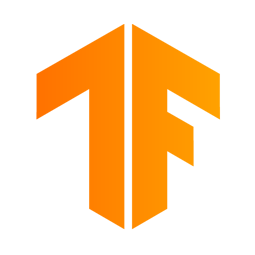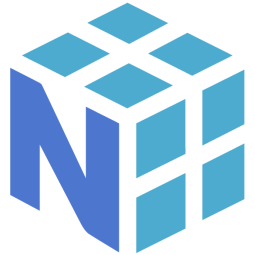We’re on a mission to unify all ML frameworks 💥 + automate code conversions 🔄. pip install ivy-core 🚀, join our growing community 😊, and lets-unify.ai! 🦾
Ivy is an ML framework that currently supports JAX, TensorFlow, PyTorch, and Numpy. We’re very excited for you to try it out!
Next on our roadmap is to support automatic code conversions between all frameworks 🔄, and add instant multi-framework support for all open-source libraries with only a few lines of code changed! Read on to learn more 😊
The docs are split into a number of sub-pages explaining different aspects of why we created Ivy, how to use it, what we’ve got planned on our roadmap, and how to contribute! Click on the sub-headings below to check out these pages!
We use 🚧 to indicate that the feature being discussed is in development. We use ✅ to indicate that it is already implemented!
Check out the docs for more info, and check out our Google Colabs for some interactive demos!
🚨 Ivy is still at a relatively early stage of development. Expect breaking changes and sharp edges until we release version 1.2.0 in the next few weeks!
If you would like to contribute, please check out our contributor guide, and take a look at the open tasks if you'd like to dive straight in! 🧑💻
If you'd like to ask us questions, feel free to join in on any of our weekly "Ask us Anything!" online sessions! To see when the next one will be, check out the Events tab at the top left our discord server 🙂
Ivy can be installed like so: pip install ivy-core You can immediately use Ivy to train a neural network, using your favorite framework in the background, like so:
import ivy
class MyModel(ivy.Module):
def __init__(self):
self.linear0 = ivy.Linear(3, 64)
self.linear1 = ivy.Linear(64, 1)
ivy.Module.__init__(self)
def _forward(self, x):
x = ivy.relu(self.linear0(x))
return ivy.sigmoid(self.linear1(x))
ivy.set_backend('torch') # change to any backend!
model = MyModel()
optimizer = ivy.Adam(1e-4)
x_in = ivy.array([1., 2., 3.])
target = ivy.array([0.])
def loss_fn(v):
out = model(x_in, v=v)
return ivy.mean((out - target)**2)
for step in range(100):
loss, grads = ivy.execute_with_gradients(loss_fn, model.v)
model.v = optimizer.step(model.v, grads)
print('step {} loss {}'.format(step, ivy.to_numpy(loss).item()))
print('Finished training!')This example uses PyTorch as a backend framework, but the backend can easily be changed to your favorite frameworks, such as TensorFlow, or JAX.
Framework Agnostic Functions
In the example below we show how Ivy's concatenation function is compatible with tensors from different frameworks. This is the same for ALL Ivy functions. They can accept tensors from any framework and return the correct result.
import jax.numpy as jnp
import tensorflow as tf
import numpy as np
import torch
import ivy
jax_concatted = ivy.concat((jnp.ones((1,)), jnp.ones((1,))), -1)
tf_concatted = ivy.concat((tf.ones((1,)), tf.ones((1,))), -1)
np_concatted = ivy.concat((np.ones((1,)), np.ones((1,))), -1)
torch_concatted = ivy.concat((torch.ones((1,)), torch.ones((1,))), -1)To see a list of all Ivy methods, type ivy. into a python command prompt and press tab. You should then see output like the following:
ivy.Container( ivy.general ivy.reduce_min(
ivy.abs( ivy.get_device( ivy.reduce_prod(
ivy.acos( ivy.get_num_dims( ivy.reduce_sum(
ivy.acosh( ivy.gradient_descent_update( ivy.reductions
ivy.activations ivy.gradient_image( ivy.relu(
ivy.arange( ivy.gradients ivy.reshape(
ivy.argmax( ivy.identity( ivy.round(
ivy.argmin( ivy.image ivy.scatter_nd(
ivy.array( ivy.indices_where( ivy.seed(
ivy.asin( ivy.inv( ivy.shape(
ivy.asinh( ivy.layers ivy.shuffle(
ivy.atan( ivy.leaky_relu( ivy.sigmoid(
ivy.atan2( ivy.linalg ivy.sin(
ivy.atanh( ivy.linear( ivy.sinh(
ivy.bilinear_resample( ivy.linspace( ivy.softmax(
ivy.cast( ivy.log( ivy.softplus(
ivy.ceil( ivy.logic ivy.split(
ivy.clip( ivy.logical_and( ivy.squeeze(
ivy.concatenate( ivy.logical_not( ivy.stack(
ivy.container ivy.logical_or( ivy.stack_images(
ivy.conv2d( ivy.math ivy.stop_gradient(
ivy.core ivy.matmul( ivy.svd(
ivy.cos( ivy.maximum( ivy.tan(
ivy.cosh( ivy.minimum( ivy.tanh(
ivy.cross( ivy.neural_net ivy.tile(
ivy.cumsum( ivy.nn ivy.to_list(
ivy.depthwise_conv2d( ivy.norm( ivy.to_numpy(
ivy.dtype( ivy.one_hot( ivy.transpose(
ivy.execute_with_gradients( ivy.ones( ivy.unstack(
ivy.exp( ivy.ones_like( ivy.variable(
ivy.expand_dims( ivy.pinv( ivy.vector_to_skew_symmetric_matrix(
ivy.flip( ivy.randint( ivy.verbosity
ivy.floor( ivy.random ivy.where(
ivy.floormod( ivy.random_uniform( ivy.zero_pad(
ivy.backend_handler ivy.reduce_max( ivy.zeros(
ivy.gather_nd( ivy.reduce_mean( ivy.zeros_like(A huge number of ML tools have exploded onto the scene!
(b) Why Unify?
Why should we try to unify them?
(c) Standardization
We’re collaborating with The Consortium for Python Data API Standards
1. Serve as a transpiler between frameworks 🚧
2. Serve as a new ML framework with multi-framework support ✅
The Ivy codebase can then be split into three categories, and can be further split into 8 distinct submodules, each of which falls into one of these three categories as follows:
Back-end functional APIs ✅
Ivy functional API ✅
Framework Handler ✅
Ivy Compiler 🚧
(b) Ivy as a Transpiler
Front-end functional APIs 🚧
(c) Ivy as a Framework
Ivy stateful API ✅
Ivy Container ✅
Ivy Array 🚧
Ivy libraries in mechanics, vision, robotics, memory, and other areas
(b) Builder [page coming soon!] ✅
ivy.Trainer, ivy.Dataset, ivy.Dataloader and other helpful classes and functions for creating training workflows in only a few lines of code(a) Standardize [page coming soon!] 🚧
Align Ivy with the Consortium for Python Data API Standards
(b) Front-Ends [page coming soon!] 🚧
Create backend-specific front-ends for each supported ML framework
(c) Transpiler [page coming soon!] 🚧
Verify code conversions work for each back-end and front-end combo
(d) Ecosystem [page coming soon!] 🚧
Add multi-framework support to popular repos with a few lines changed
Join our community as a code contributor, and help accelerate our journey to unify all ML frameworks! Find out more in our Contributing guide!
@article{lenton2021ivy,
title={Ivy: Templated deep learning for inter-framework portability},
author={Lenton, Daniel and Pardo, Fabio and Falck, Fabian and James, Stephen and Clark, Ronald},
journal={arXiv preprint arXiv:2102.02886},
year={2021}
}













